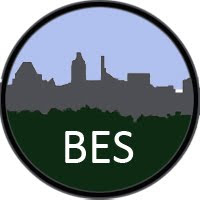This research was supported by funding from the NSF Long-term Ecological Research (LTER) Program. This material is based upon work supported by the National Science Foundation under Grant Nos. DEB-1637661 and DEB-1855277. Any opinions, findings, and conclusions or recommendations expressed in this material are those of the author(s) and do not necessarily reflect the views of the National Science Foundation.
The Baltimore Ecosystem Study has been a National Science Foundation Long Term Ecological Research (LTER) site since 1998. Visit other LTER sites.
 |
 |

Director’s Award 2013 to Prof. William R. Burch, Jr.
Bill Burch is one of the people without whom the Baltimore Ecosystem Study LTER would not exist. Bill has been a pioneer in community and social forestry. He also was […]
Weeds and the City
Few ideas are as loaded — and as controversial — as that of “weed.” Combine this familiar term with the equally problematic term urban, and surely, confusion is guaranteed to […]
What Did BES Do Last Year? The 2012 Annual Report
Who did this work? The Baltimore Ecosystem Study, Long-Term Ecological Research Program is a large, complex, and active endeavor. Its participants include 40 researchers, educators, and leaders in community engagement. […]
Coupled? Hybrid? Or Just Systems?
Having recently returned from the first Congress of the Society of Urban Ecology, I can report that there was a lot of talk in the plenary sessions about the nature […]
What Does Collapse Tell Us About Resilience?
The adaptve cycle is key to understanding resilience as an integrated ecological and social construct. The cycle is introduced elsewhere in this Web Log (http://besdirector.blogspot.com/2011/01/resilience-ecology-evolution-and.html) as well as briefly defined […]
Myth and Memory of Rivers and Shorelines
One of the first things I experienced when learning how to get around Baltimore was the mash up of its multiple street grids. First I have to admit that most […]
Preparing for the BES Mid-Term Review: What Does NSF Want?
Here are the current expectations as stated by the National Science Science Foundation that will be used in evaluating BES. The Mid-Term Review will take place in October, and this […]
Patterson Clark Named BES Artist-In-Residence for 2013
I am extremely excited to announce that Patterson Clark is the BES 2013 Artist-In-Residence. Here is a description of his work, based on text provided by the selection committee, consisting […]
BES Book of the Year: Austin Troy’s “The Very Hungry City”
Each year, BES chooses a Book of the Year. This allows our community to share in exploring an important work on urban ecology and urban processes in general. For 2013, […]
The Problem of the Urban Landscape
I was recently accused of bringing a wilderness or rural approach to urban landscapes. This surprised me since I have long had what I think of as an inclusive concept […]